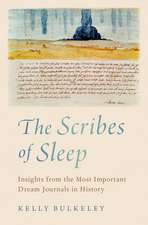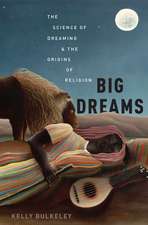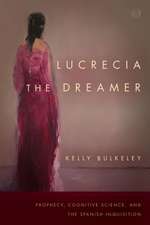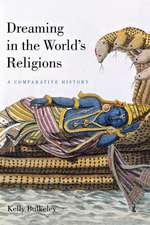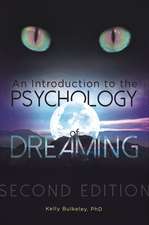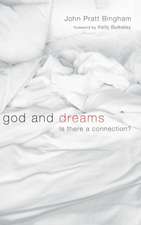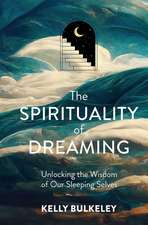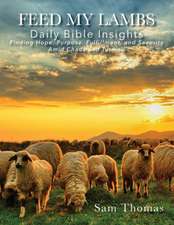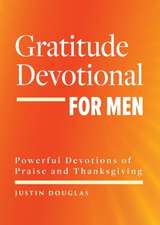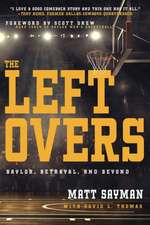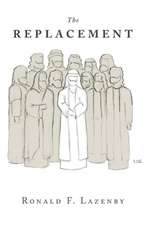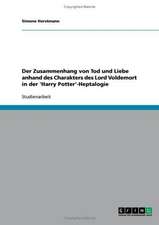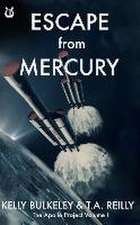The Wondering Brain: Thinking about Religion With and Beyond Cognitive Neuroscience
Autor Kelly Bulkeleyen Limba Engleză Paperback – 2 noi 2004
| Toate formatele și edițiile | Preț | Express |
|---|---|---|
| Paperback (1) | 369.61 lei 6-8 săpt. | |
| Taylor & Francis – 2 noi 2004 | 369.61 lei 6-8 săpt. | |
| Hardback (1) | 1000.27 lei 6-8 săpt. | |
| Taylor & Francis – 6 noi 2004 | 1000.27 lei 6-8 săpt. |
Preț: 369.61 lei
Nou
Puncte Express: 554
Preț estimativ în valută:
70.72€ • 73.84$ • 58.53£
70.72€ • 73.84$ • 58.53£
Carte tipărită la comandă
Livrare economică 04-18 aprilie
Preluare comenzi: 021 569.72.76
Specificații
ISBN-13: 9780415938419
ISBN-10: 0415938414
Pagini: 242
Ilustrații: 21
Dimensiuni: 152 x 229 x 14 mm
Greutate: 0.45 kg
Ediția:1
Editura: Taylor & Francis
Colecția Routledge
Locul publicării:Oxford, United Kingdom
ISBN-10: 0415938414
Pagini: 242
Ilustrații: 21
Dimensiuni: 152 x 229 x 14 mm
Greutate: 0.45 kg
Ediția:1
Editura: Taylor & Francis
Colecția Routledge
Locul publicării:Oxford, United Kingdom
Notă biografică
Kelly Bulkeley teaches at the Graduate Theological Union and John F. Kennedy University, both in the San Francisco Bay area. Former president of the Association for the Study of Dreams, he is the author of several books.
Recenzii
"An accessible and well-written synthesis of the implications of cognitive neuroscience for the study of religion, this volume focuses on the experience of wonder in four major contexts…" --Diane Jonte-Pace, Santa Clara University, Religious Studies Review
"Successfully alluring readers into rapt interest, Bulkeley guides them through an introduction to cognitive neuroscience and evolutionary psychology. His command of the literature and ease of expression make it possible for the novice to learn, discover, and ponder with him." -- David T. Gortner, Church Divinity School of the Pacific, Anglican Theological Review
"This book is a masterwork of scholarly integration with a fascinating theory of wonder as a source of spiritual growth. It also provides us with many examples of gracefully respecting the contributions of scholars whose own work is painfully contemptuous of others." - Patricia M. Davis, Pastoral Psychology, December 2006
"An accessible and well-written synthesis of the implications of cognitive neuroscience for the study of religion, this volume focuses on the experience of wonder in four major contexts…" --Diane Jonte-Pace, Santa Clara University, Religious Studies Review
"Successfully alluring readers into rapt interest, Bulkeley guides them through an introduction to cognitive neuroscience and evolutionary psychology. His command of the literature and ease of expression make it possible for the novice to learn, discover, and ponder with him." -- David T. Gortner, Church Divinity School of the Pacific, Anglican Theological Review
"This book is a masterwork of scholarly integration with a fascinating theory of wonder as a source of spiritual growth. It also provides us with many examples of gracefully respecting the contributions of scholars whose own work is painfully contemptuous of others." - Patricia M. Davis, Pastoral Psychology, December 2006
'The Wondering Brain should achieve its aim of spurring conversation. It teaches enough for people to enter into discussion, includes very helpful illustrations of the brain and perceptual processes, and takes on tough questions about wonders such as war that are neither pleasant nor beautiful.' - Sandra Lee Dixon, University of Denver
"Successfully alluring readers into rapt interest, Bulkeley guides them through an introduction to cognitive neuroscience and evolutionary psychology. His command of the literature and ease of expression make it possible for the novice to learn, discover, and ponder with him." -- David T. Gortner, Church Divinity School of the Pacific, Anglican Theological Review
"This book is a masterwork of scholarly integration with a fascinating theory of wonder as a source of spiritual growth. It also provides us with many examples of gracefully respecting the contributions of scholars whose own work is painfully contemptuous of others." - Patricia M. Davis, Pastoral Psychology, December 2006
"An accessible and well-written synthesis of the implications of cognitive neuroscience for the study of religion, this volume focuses on the experience of wonder in four major contexts…" --Diane Jonte-Pace, Santa Clara University, Religious Studies Review
"Successfully alluring readers into rapt interest, Bulkeley guides them through an introduction to cognitive neuroscience and evolutionary psychology. His command of the literature and ease of expression make it possible for the novice to learn, discover, and ponder with him." -- David T. Gortner, Church Divinity School of the Pacific, Anglican Theological Review
"This book is a masterwork of scholarly integration with a fascinating theory of wonder as a source of spiritual growth. It also provides us with many examples of gracefully respecting the contributions of scholars whose own work is painfully contemptuous of others." - Patricia M. Davis, Pastoral Psychology, December 2006
'The Wondering Brain should achieve its aim of spurring conversation. It teaches enough for people to enter into discussion, includes very helpful illustrations of the brain and perceptual processes, and takes on tough questions about wonders such as war that are neither pleasant nor beautiful.' - Sandra Lee Dixon, University of Denver
Cuprins
Introduction I. Spheres of Wonder II. Presidential Proclamation 6158 1 Dreams and Visions I. The Young Man’s Dreams II. “Brain on Fire”: A First Look at Cognitive Neuroscience III. “Not My Human Mind”: A First Look at Religious Studies IV. The Young Man’s Dreams, Anew 2 Sexual Desire I. Angela Amid the Roses II. Mating Games and Climactic Mysteries III. Sex and the Sacred Religion and Psychology Interlude I: How Freud Fares IV. The Passion of Lester Burnham 3 Creative Madness I. Teen Spirit II. The Neuroscience of Creativity and Madness III. Religion, Music, and the Brain Religion and Psychology Interlude II: How Jung Fares IV. No Recess 4 Contemplative Practice I. “Recite!” II. Cognitive Neuroscience on Reality, Consciousness, and Meditation III. Mysticism, Reconsidered Religion and Psychology Interlude III: How James Fares IV. The Satanic Verses Conclusion: The Evolution of Wonder I. War and Wonder II. The Rainbow
Descriere
This book argues that the profounded questions raised by cognitive neuroscience may best be answered through a dialogue with religion.

